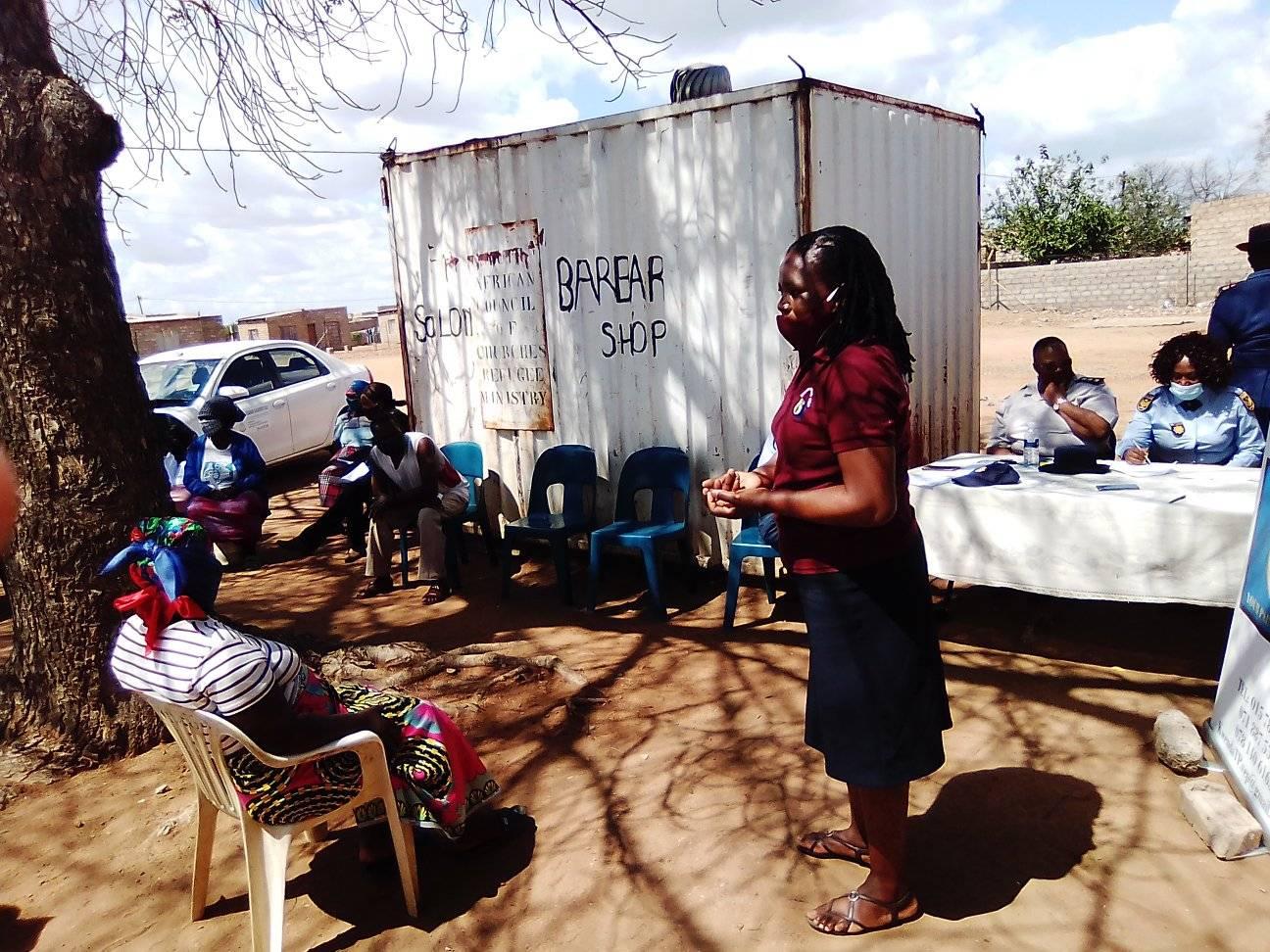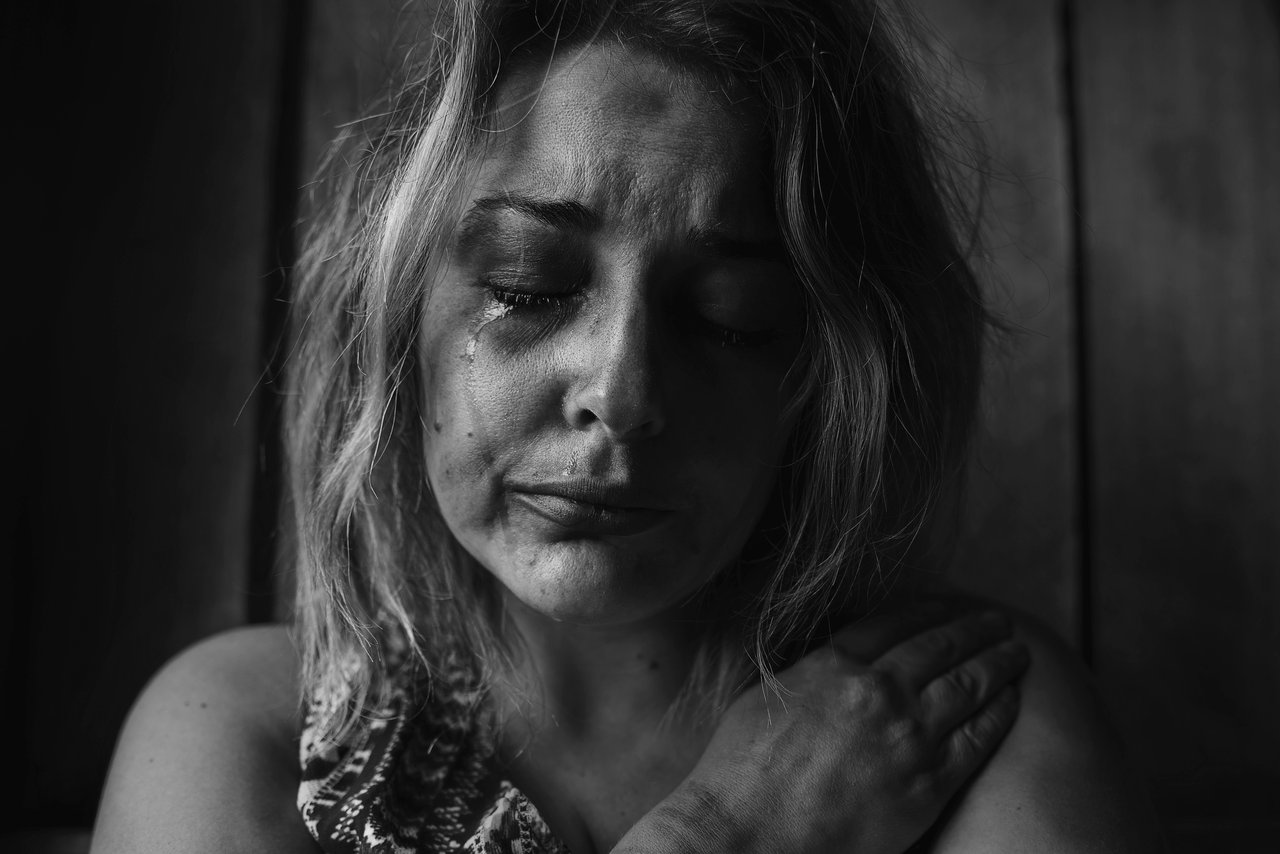We Also Support Children and Youth to Reach Their Full Potential.
Our Role
The Organization is formed to educate and empower the community to break the cycle of domestic violence, to reduce high rate of domestic violence and provide support and care to victims of domestic violence and other forms of abuse.
The following are the forms of Abuses we fight against

01.
— Gender-Based Violence
Gender-Based Violence is the general term used to capture violence that occurs as a result of the normative role expectations associated with each gender, along with the unequal power relationships between the two genders, within the context of a specific society.” (Bloom 2008, p14).
While women, girls, men and boys can be victims of GBV, the main focus of this resource package is on violence against women and girls.
This is not to say that gender-based violence against men does not exist. For instance, men can become targets of physical or verbal attacks for transgressing predominant concepts of masculinity, for example because they have sex with men. Men can also become victims of violence in the family – by partners or children. (Bloom 2008, p14)
However, it has been widely acknowledged that the majority of persons affected by gender-based violence are women and girls, as a result of unequal distribution of power in society between women and men. Further, women and girls victims of violence suffer specific consequences as a result of gender discrimination. As summed up by UNFPA.
02.
— Domestic Violence
Domestic Violence is any relation, process, or condition by which an individual or group violate the physical,, social or psychological integrity of another person/people.
03.
— Child Abuse
Child Abuse is when a parent or caregiver, whether through action or failing to act, causes injury, death, emotional harm or risk of serious injury to a child’s body.
It includes physical, sexual, and/or psychological maltreatment or neglect of a child or children, especially by a parent or a caregiver.
04.
— Human Trafficking
Human Trafficking is the process of trapping people through the use of violence, deception or coercion and exploiting them for financial or personal gain.
STRATEGIC OBJECTIVE
- To provide care and support services to victims of crime and violence.
GUIDING PRINCIPLES
KVEP is guide by seven key principles. These principles are embodied in values that determine the nature and quality of services for victims, respecting their rights and applying the principles of Batho Pele. The principles are:
- Empowerment
- Human rights
- Participation and Self-determination
- Family-cantered Approach
- Accountability, Effectiveness and Efficiency
- Restorative Justice
- Multi-disciplinary Approach
01.
— LEGISLATIVE MANDATES
- Maintenance Act, 1998 (Act 99 of 1998)
- Recognition of Customary Marriages Act, 1998 (Act 120 of 1998)
- Justice Matter Amendment Act, 1999 (Act 26 of 1999)
- Prevention of Organised Crime Second Amendment Act, 1999 (Act 38 of 1999)
- Administrative justice Act (Act 3 of 2000)
- Access to information Act (Act of 2000)
- Promotion of equality and prevention of Unfair Discrimination (Act of 2000)
- Child Justice Act (75 of 2008)
- Children’s Act 38 of 2005
- Hague Convention on the Civil Aspects of International Child Abduction Act, 1996 ( Act 72 of 1996)
- Criminal Procedure Section Amendment Act, 1997(Act 85 of 1997)
- Criminal Law Amendment Act, 1997 ( Act 105 of 1997)
- Witness Protection and Services Act, 1998 (Act 112 of 1998)
- Domestic Violence Act,1998 (Act 116 of 1998)
- National Prosecution Authority Act, 1998 (Act 32 of 1998)
- Prevention of Organized crime Act, 1998 (Act 121 of 1998)
- National Policy Guidelines for Victim Empowerment Social service providers
- Minimum standards for Service Delivery in Victim Empowerment
- Victim’s Charter
- Sexual Offences Act 23 of 1957
- Older persons Act 13 of 2006
- Prevention and Treatment of Drug Dependency Act 20 of 1992
- Prevention and Combating of Trafficking in Persons Act ( Act 7 of 2013)
02.
— Core intervention Strategies
- Education and Training of personnel and consumers of the services.
- Establishing services and programmes.
- Render counseling services to victims of crime and violence
- Conduct awareness and preventative programmes at local schools and within communities.
- Assist victims of domestic violence with appropriate and suitable accommodation within shelters and safe houses.
- Give support to victims as witness during trail.
- Research, monitoring & evaluation.
- Building skills
- Capacitating management structures.
- Creating awareness/providing information.
03.
— Prevention
Aims to stop violence before it occurs.
Outreach programmes,
- Awareness campaigns at schools, men’s groups, women’s groups, churches and community based organizations, radio talk and community campaigns.
04.
— Activities
- Inform communities on availability of an access to resources
- Provide information on referral procedures
- Identify early warning signs
- Develop programmes that will protect young people, families and other community members from becoming potential victims or perpetrators.
- Counseling
05.
— Early Intervention
This include parental skills development, debriefing and therapeutic services focusing on empowerment of women and children exposed to mild or moderate domestic violence within the onset phase of domestic violence.
Drop in centers: overnight shelter for emergency services for victims.
Safe houses in the community
- Debriefing
- Over night facility for survivors
- Meals
- Counseling ( lay and trauma)
- Home visits (follow up and monitoring)
- Establishment of support groups and group therapy
- Transportation of destitute clients.
- Support services
- Referrals
What We Care For!

Statutory: (court services)
- Court preparation for victims
- Give support to victims at court
- Care and supervision of child witness at court
- Intermediary services
- Counseling

Continuum of Care
- Therapeutic and Rehabilitation programmes
- Skills development
- Promotion of healthy life style
- Family enrichment programmes
- Essential behavioral therapy and educational programmes for children.
- Counseling
- Referrals

Re-unification services
- Counseling
- Family enrichment
- Home visits
- Reintegration

Priority Targets
- Violence against Women
- Abused Children
- Victims of Domestic Violence (Gender Based Violence)
- Victims of Sexual Assault and Rape
- Abused Older Persons
- Abused People with Disabilities
- Victims of Human Trafficking
- Victims of Hate Crimes
- Farm Workers and Dwellers
- Ex-Combatants

Priority Targets
- Number of victims of crime and violence in funded service sites
- Number of victims of crime and violence receiving psychosocial support

REGISTRATION
- Organizations rendering services to victims of crime and violence should be registered as NPOs with the NPO Act 71 of 1997.
- Organizations rendering services to victims of Human trafficking should be accredited by the Department of Social Development in terms of the TIP Act No 7 of 2013